Body Weight and Type 2 Diabetes
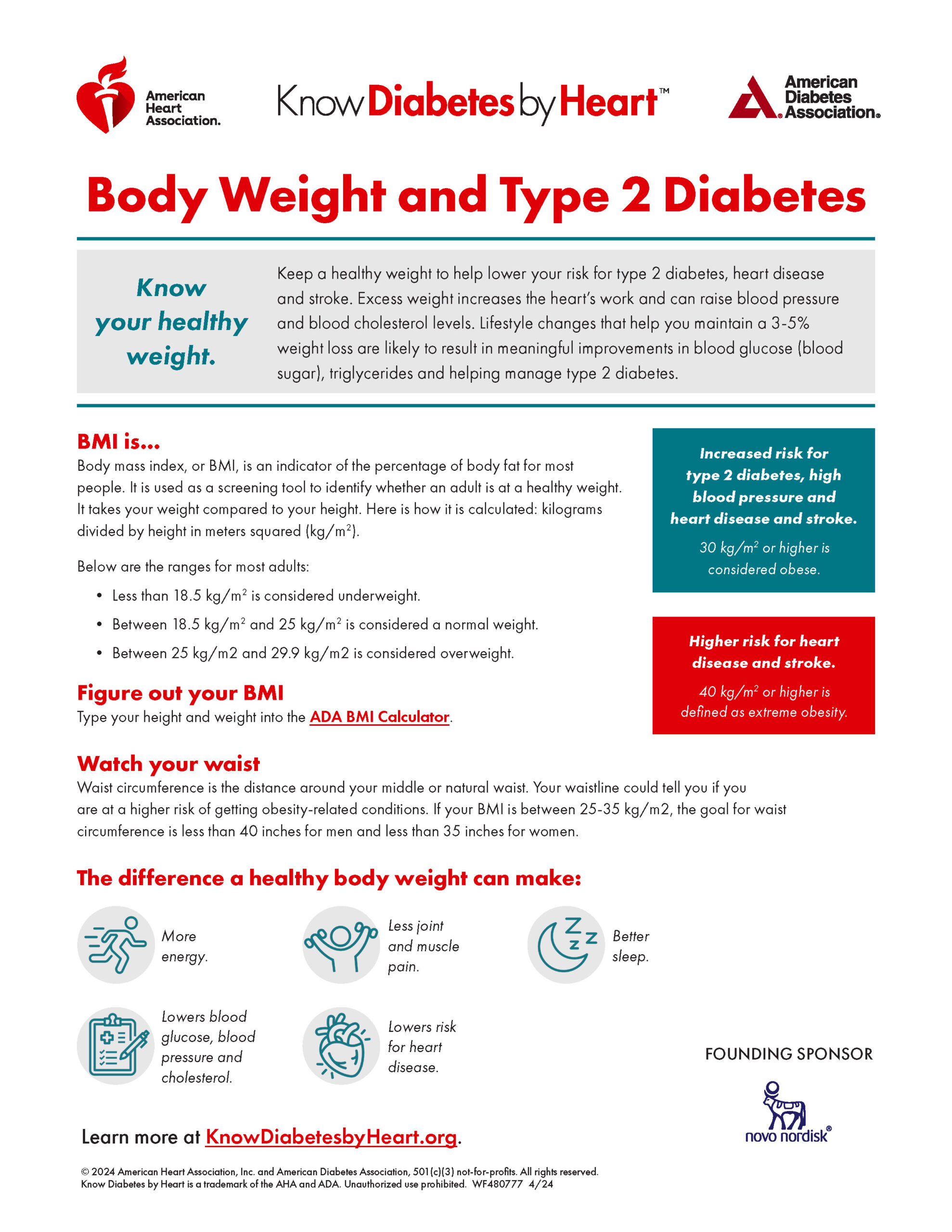
Keep a healthy body weight to help lower your risk for type 2 diabetes, heart disease and stroke.
Monitoring Your Kidney Health with eGFR Tests in Spanish
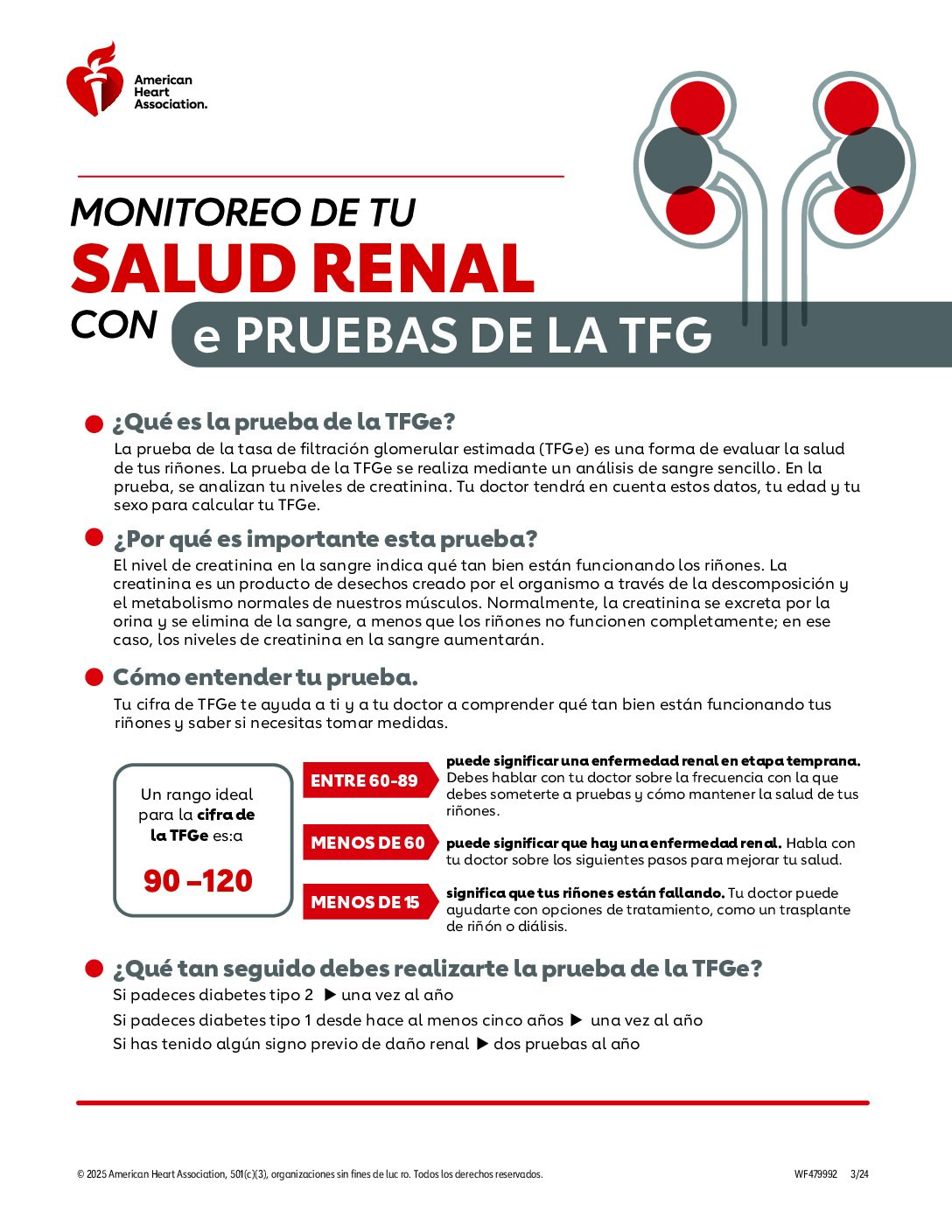
La prueba de la tasa de filtración glomerular estimada (TFGe) es una forma de evaluar la salud de tus riñones.La prueba de la TFGe se realiza mediante un análisis de sangre sencillo.
Available in English
Monitoring Your Kidney Health with eGFR Tests
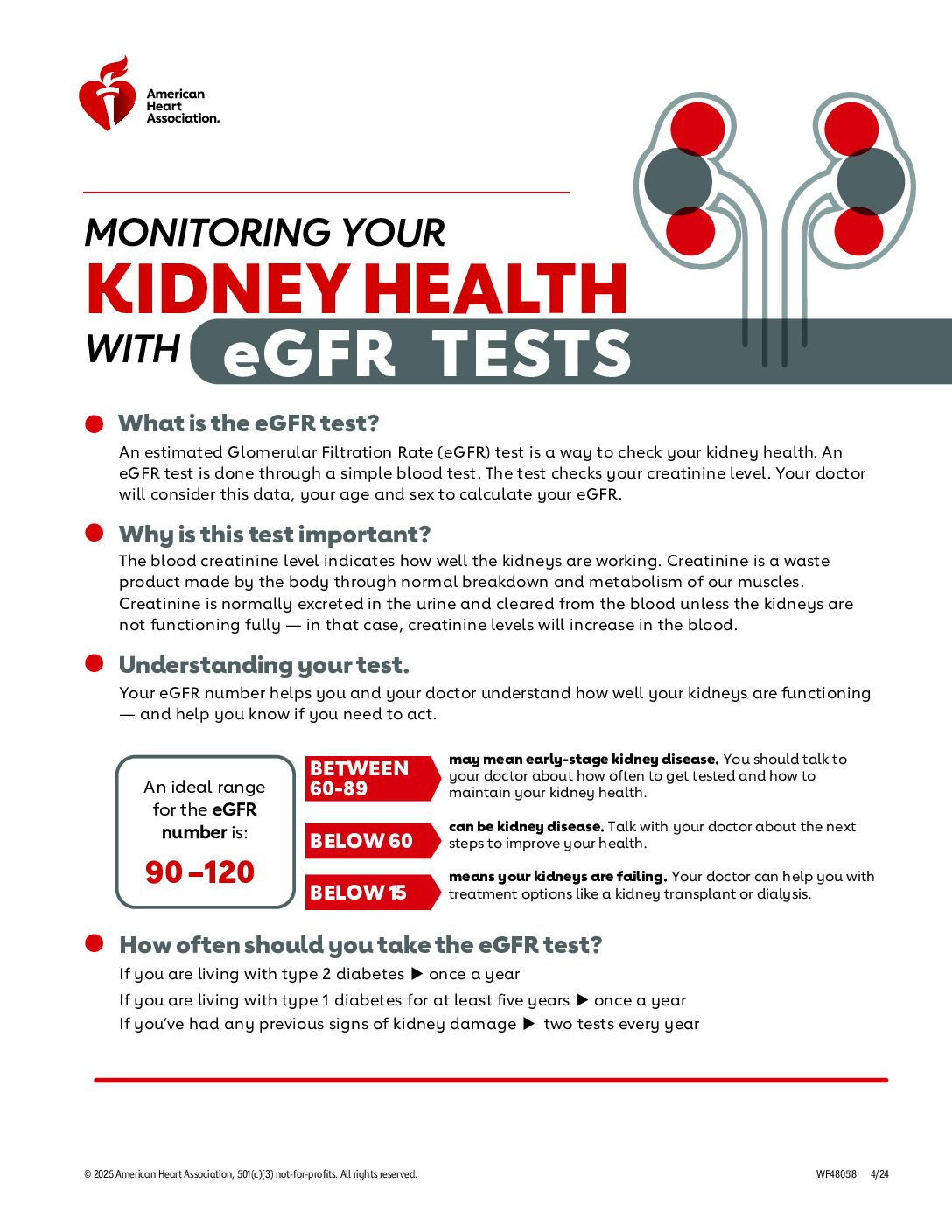
What is the eGFR test? An estimated Glomerular Filtration Rate (eGFR) test is a way to check your kidney health. An eGFR test is done through a simple blood test. The test checks your creatinine level. Your doctor will consider this data, your age and sex to calculate your eGFR.
Available in Spanish
Monitoring Your Kidney Health with UACR Tests in Spanish
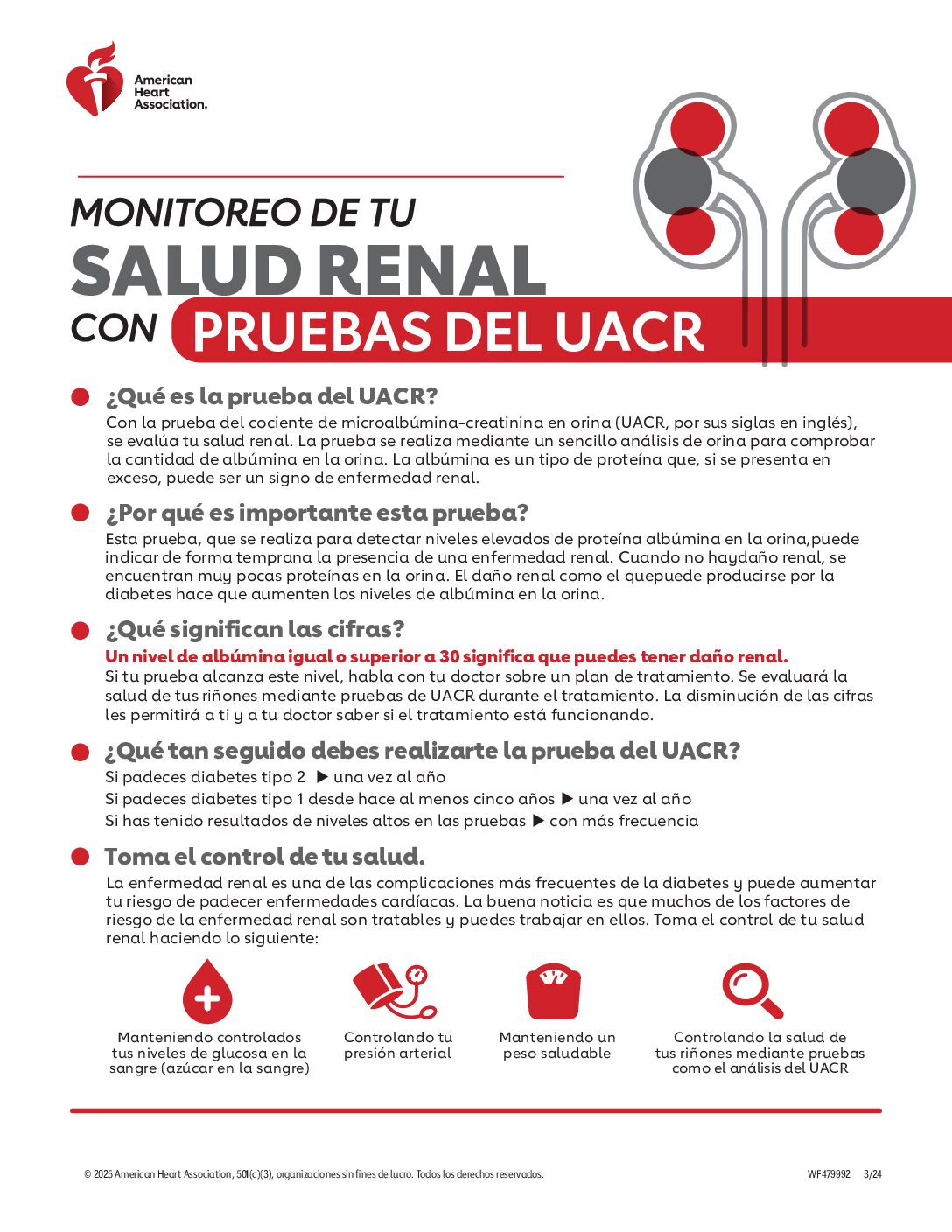
Con la prueba del cociente de microalbúmina-creatinina en orina (UACR, por sus siglas en inglés), se evalúa tu salud renal. La prueba se realiza mediante un sencillo análisis de orina para comprobar la cantidad de albúmina en la orina.
Available in English
Monitoring Your Kidney Health with UACR Tests
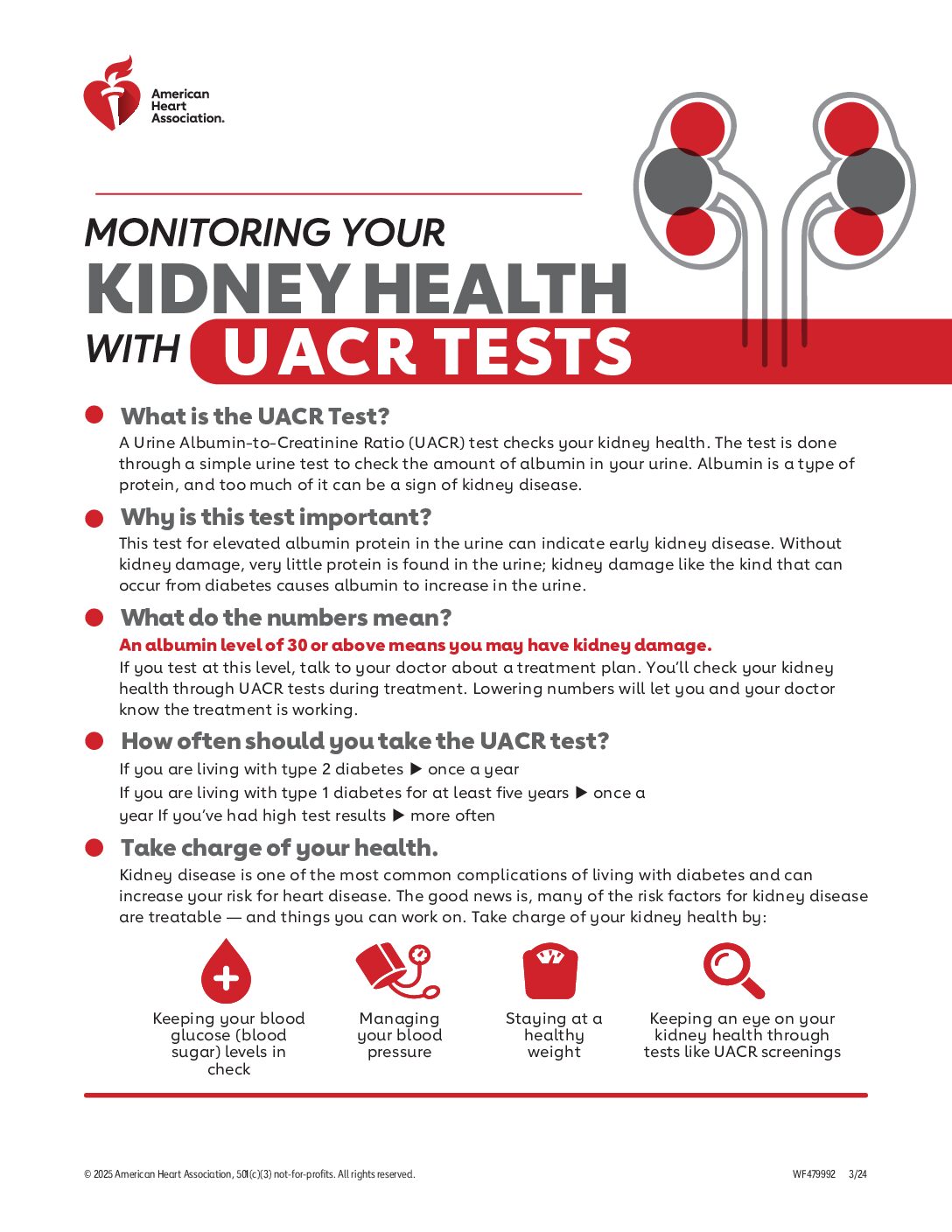
What is the UACR Test? A urine Albumin-to-Creatinine Ratio (uACR) test checks your kidney health. The test is done through a simple urine test to check the amount of albumin in your urine. Albumin is a type of protein, and too much of it can be a sign of kidney disease.
Available in Spanish
Labs, Scans and More!
Tuesday, April 11, 2023
Watch the Video
Stay ahead with routine and preventive health screenings. Learn about common tests for people with diabetes that help detect and prevent complications.
Diabetes by the Numbers
Tuesday, August 11, 2020
Watch the Video
There are many numbers your health care provider discusses with you. Learn what numbers you should keep track of and what they all mean.
Know Your Numbers, Lower Your Risk
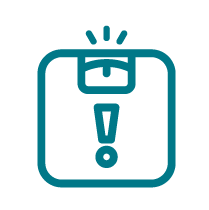
Taking care of yourself and managing your diabetes can be overwhelming and stressful in our current times. And while many things right now make us feel out of control, there are many things you CAN do to take control of your diabetes and lower your risk of heart disease and stroke. The first step is to know your critical numbers. You’ve got this!
The Numbers You Need to Know
Knowing these five numbers can give you a more accurate picture of your health. And keeping them within the target range can help lower your risk of heart disease and stroke!
At your next appointment (live or via telehealth), talk to your doctor about these measurements so you can build a customized plan together.
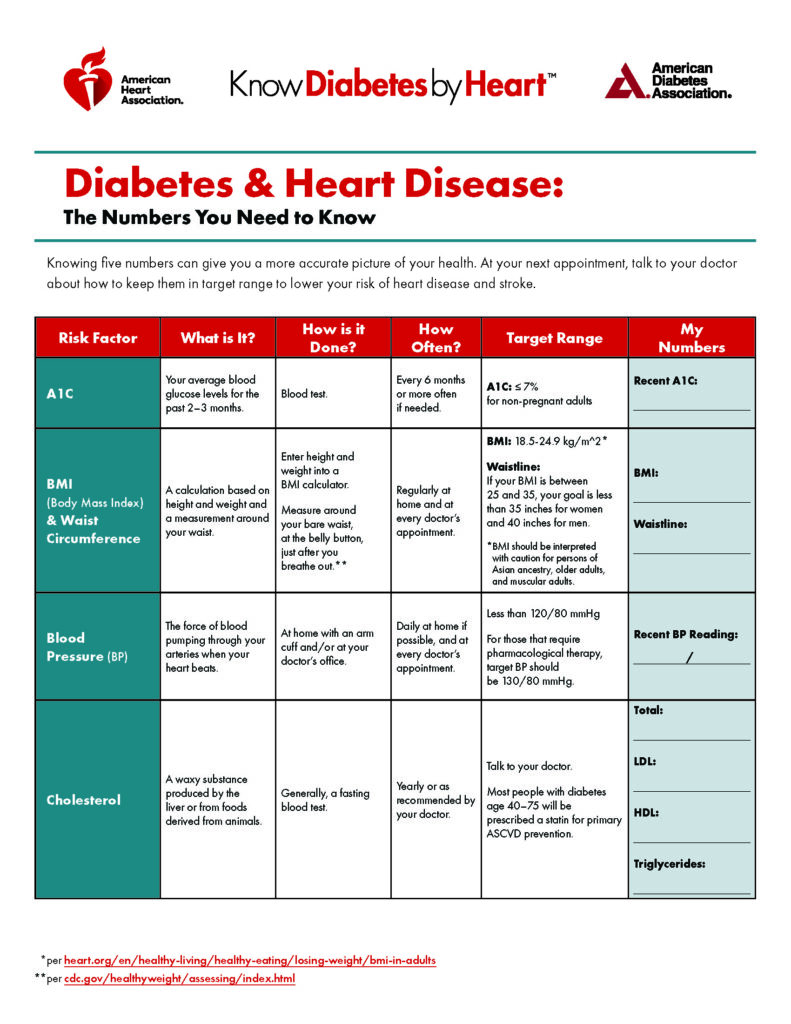
You Have the Numbers, Now What?
When it comes to your health plan, following up on your stats and maintaining healthy routines to reduce your risk for heart disease and stroke will put you in better control of your health! You CAN thrive with diabetes, here are a few tips:
- Keep track of all of your critical health numbers in a central location, like in a journal or on your phone.
- Build habits that can make a big difference, like eating smart, moving more and sticking with your medication plan.
- Start an ongoing conversation with your doctor about your lifestyle and medication plans so they can be your partner and help you determine what’s working and what’s not.
- Develop a solid network of support – your friends and family want to see you succeed and can give you the extra boost you need to stay motivated.
To build the best possible treatment plan for YOUR body, and significantly lower your risk of complications it’s important to find out what your numbers are. Following your prescribed lifestyle and medication plan can go a long way in making it happen!
Learn More
Get more tips and join the initiative at KnowDiabetesByHeart.org/join.




